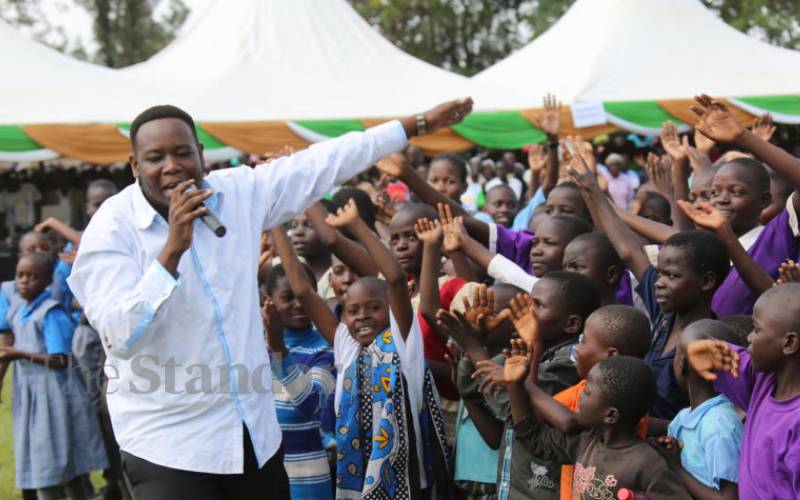×
The Standard e-Paper
Home To Bold Columnists

Gospel singer Rufftone at Nambacha Primary School in Navakholo, Kakamega County, on June 12, 2015. [Benjamin Sakwa, Standard]
Osumba Rateng’ is a frustrated man. The 75-year-old singer behind the Baba Otonglo hit has nothing to show for his work.